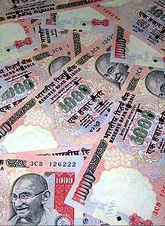 | « Back to article | Print this article |
 Sounding confident of the industry maintaining higher growth rate in the coming months, Cabinet Secretary K M Chandrasekhar has said the government would review the stimulus measures in the FY11 Budget.
Sounding confident of the industry maintaining higher growth rate in the coming months, Cabinet Secretary K M Chandrasekhar has said the government would review the stimulus measures in the FY11 Budget.
"Stimulus is now part of the overall scheme of things. So, if it is being withdrawn, from time to time decisions will be taken. Decisions will be taken through the Budget," he told reporters in New Delhi.
Indicating that the stimulus packages could be withdrawn in a phased manner, Chandrasekhar said, "It is not going to be that one day there is stimulus (and) the next day it goes."
Following the global crisis triggered by the collapse of the Wall Street titans last year, the government unveiled three stimulus packages to boost the economy. These packages imposed a burden of Rs 1.86 lakh crore (Rs 1.86 trillion) on the Exchequer sharply increasing the deficit.
The stimulus measures, however, had very positive impacts on the economy which posted a high growth of 7.9 per cent during the second quarter (July-September) and also pushed the factory production in November to an astounding 11.7 per cent, fastest in the past two years.
Commenting on the robust IIP figures for November announced today, the Cabinet Secretary said, "This is very good. I would certainly hope the trend in industrial growth to continue. I am sure, overall, there is increase in demand. . . there is increase in production."
On the performance of the economy, Chandrasekhar said the growth rate has been steadily rising. "We did quite well during the recession," he added.
Having expanded at nine per cent during the last three years, growth rate slipped to 6.7 per cent in 2008-09 due to the global financial meltdown. With the robust November data GDP growth for this fiscal is estimated to move up to 8 per cent.
Declining to comment on the possibility of Reserve Bank of India raising interest rates at its monetary review slated for January 29 to tame rising inflation, Chandrasekhar said, it would be for the central bank to take a call.
"The Reserve Bank," he said, "is looking at the positions, looking at which commodities are affected by inflation, whether there is a generalised inflation, or a sector-specific inflation."
Driven by rising prices of pulses, potato and onion, food inflation soared to a decade's high of 20 per cent during the first week of December, though it declined marginally in subsequent weeks.
However, the Chief Economic Advisor Kaushik Basu and other economists have been saying that there is no room a rate hike now as that will not have the desired impact on food inflation but a detrimental impact on many other sectors.